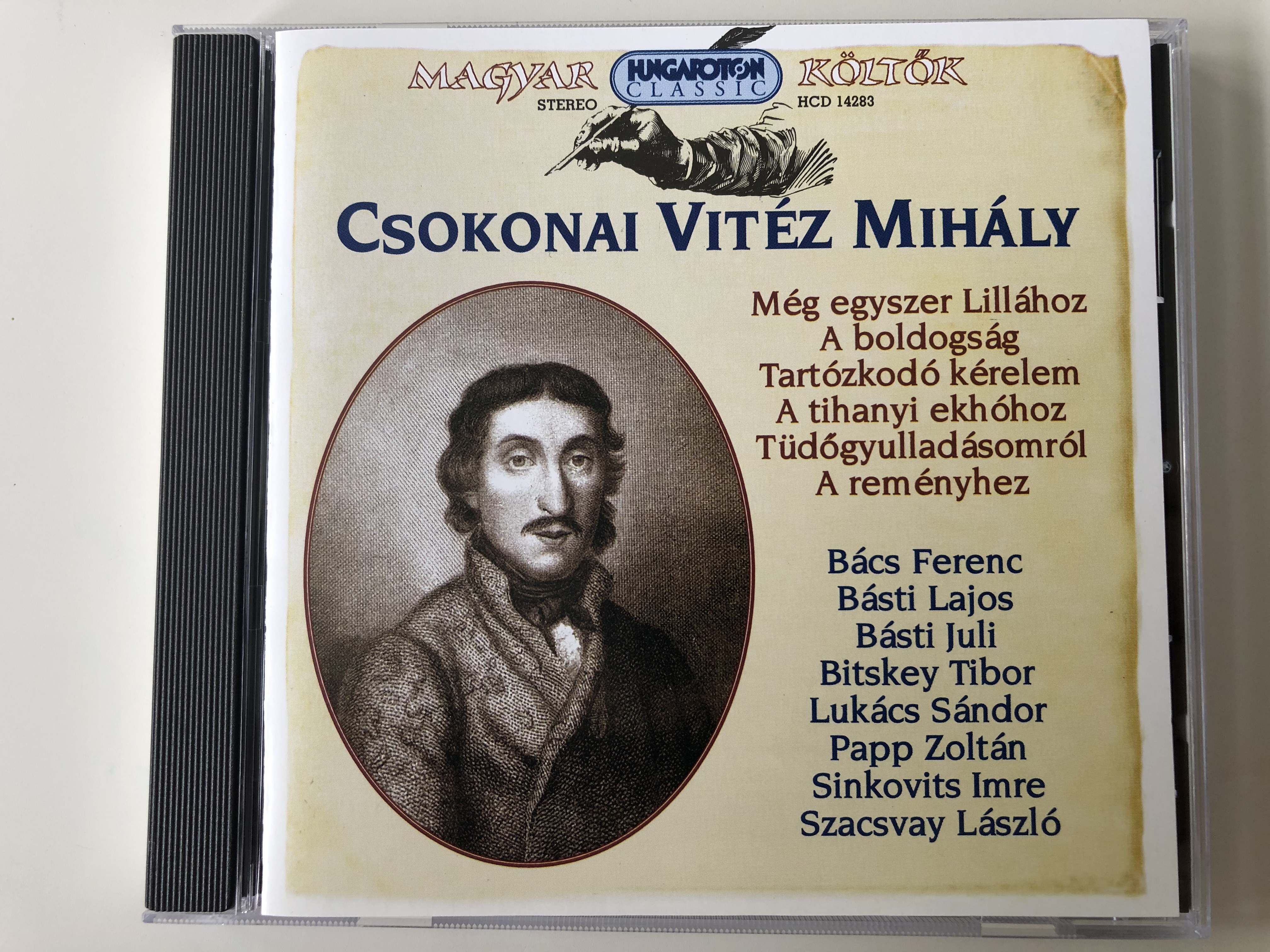Description
Magyar Költők - Csokonai Vitéz Mihály / Meg egyszer Lillahoz, A boldogság, Tartózkodó kérelem, A tihanyi ekhóhoz, Tüdőgyulladásomról, A reményhez / Bacs Ferenc, Basti Lajos, Basti Juli, .... / Hungaroton Classic Audio CD 2000 Stereo / HCD14283
UPC 5991811428327
Product Details:
Tracklist:
1. Az estve 5:40"
2. Zsugori uram 2:38"
3. Magyar! hajnal hasad 2:45"
4. A boldogság 0:41"
5. Még egyszer Lillához 2:15"
6. A rózsabimbóhoz 1:07''
7. Jövendölés az első oskoláról a Somogyban 1:32"
8. Szerelemdal a csikóbőrös kulacshoz 3:45
9. Parasztdal 4:15
10. A fekete pecsét 1:53
11. Az emberiség s a szeretet 2:24
12. Az én barátném, D. A. guodlibetjére 0:40
13. Edes keserűség 2:09
14. A pillangóhoz 3:10"
15. Szegény Zsuzsi, a táborozáskor 1:16"
16. Dr. Földiről egy töredék (részlet) 1:49"
17. Az ember, a poézis első tárgya 1:47"
18. Dr. Földi sírhalma felett 2:45"
19. Tartózkodó kérelem 0:42"
20. A szeplő 0:56"
21. Krisztina napra 5:01"
22. A békesség és a hadi érdem (részlet) 1:00"
23. A tihanyi ekhóhoz 4:16"
24. A magánossághoz 5:12"
25. A Fársáng búcsúzó szavai 2:31"
26. Tüdőgyulladásomról 3:15"
27. A reményhez 2:35"
About the Poet:
Mihály Csokonai (full name Mihály Csokonai Vitéz; in Hungarian Csokonai Mihály or Csokonai Vitéz Mihály) (17 November 1773 – 28 January 1805) was a Hungarian poet, a leading figure in the Hungarian literary revival of the Enlightenment.
Having been educated in Debrecen, where he was born, Csokonai was appointed while still very young to the professorship of poetry there. Shortly thereafter he was deprived of the post on account of the immorality of his conduct.
The remaining twelve years of his short life were passed in almost constant wretchedness, and he died in his native town, in his mother's house, when only thirty-one years of age.
Csokonai was a genial and original poet, with something of the lyrical fire of Sándor Petőfi, and wrote a mock-heroic poem called Dorottya or the Triumph of the Ladies at the Carnival, two or three comedies or farces, and a number of love-poems. Most of his works have been published by Schedel (1844–1847).





























